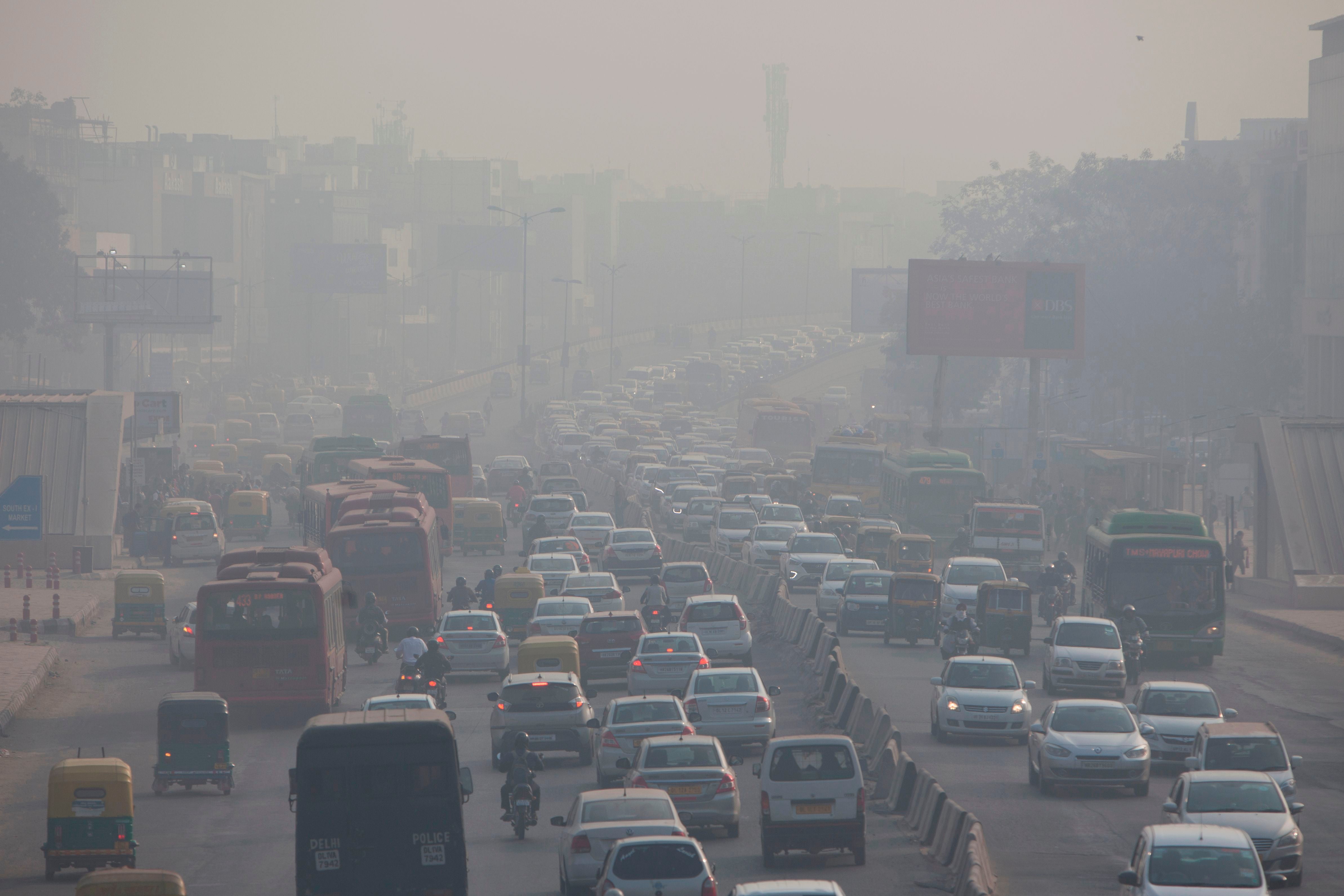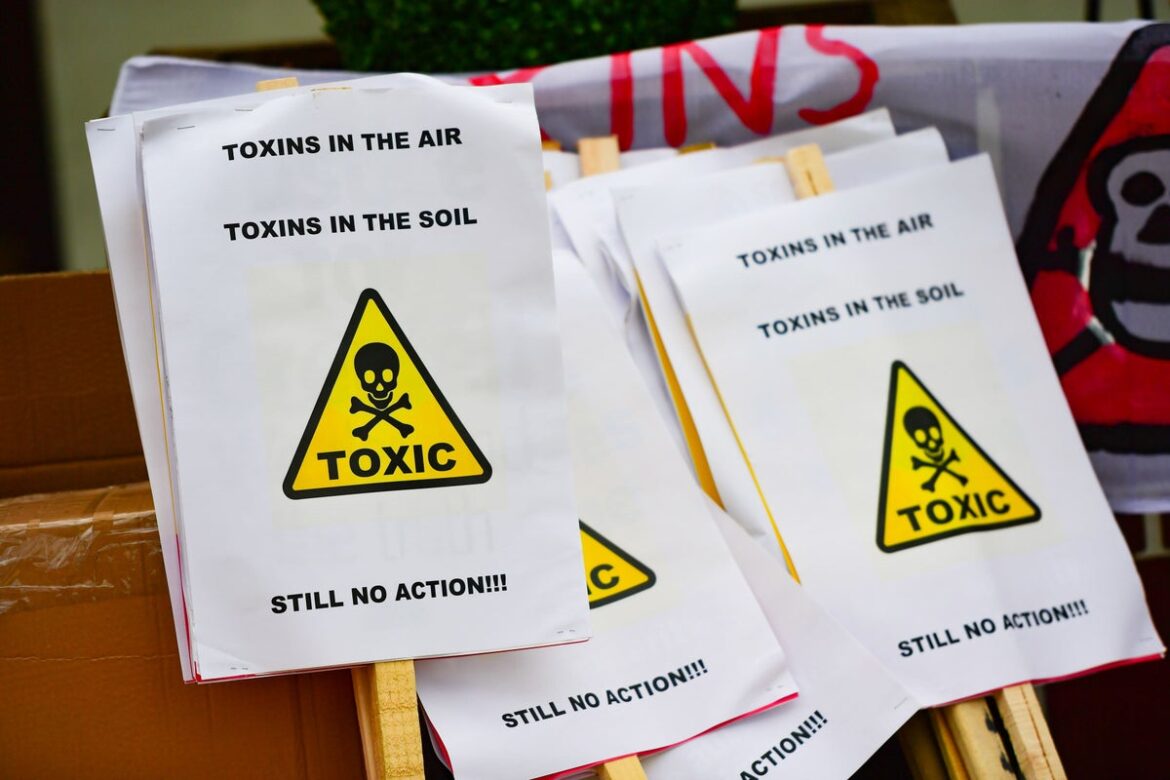Your support helps us to tell the story
From reproductive rights to climate change to Big Tech, The Independent is on the ground when the story is developing. Whether it’s investigating the financials of Elon Musk’s pro-Trump PAC or producing our latest documentary, ‘The A Word’, which shines a light on the American women fighting for reproductive rights, we know how important it is to parse out the facts from the messaging.
At such a critical moment in US history, we need reporters on the ground. Your donation allows us to keep sending journalists to speak to both sides of the story.
The Independent is trusted by Americans across the entire political spectrum. And unlike many other quality news outlets, we choose not to lock Americans out of our reporting and analysis with paywalls. We believe quality journalism should be available to everyone, paid for by those who can afford it.
Your support makes all the difference.Read more
Toxic chemicals present in our air, food and water have been strongly linked with a huge number of environmental problems and serious health issues, including cancer, obesity, dementia, infertility and ADHD.
Describing toxicity as “the most underrated threat facing humanity”, a new study has warned that the “contamination of humans is endemic” and that the risks to planetary and human health are “widely underestimated”, with the impact of pesticide use on cancer rates potentially rivalling that of smoking.
More than 3,600 synthetic chemicals from food contact materials, such as packaging and pesticides, are present within human bodies globally, the report revealed, 80 of which are feared to be especially dangerous.
Chemicals known as Perfluoroalkyl and Polyfluoroalkyl Substances (PFAS) were found in almost everyone tested, with 14 per cent of European teenagers having blood levels high enough to pose serious health risks.
Among the shocking findings is the link between pesticide use and leukaemia, non-Hodgkin’s lymphoma, and bladder, colon and liver cancer – including suggestions that prenatal pesticide exposure increases the odds of childhood leukaemia and lymphoma by more than 50 per cent.

open image in gallery
The impact of pesticide use on cancer rates was found to potentially rival that of smoking (PA)
Evidence was also gathered showing that synthetic chemicals humans are exposed to have contributed to a global decline in sperm count – for example, men with high levels of certain PFAS have been found to have less than half the normal sperm count of those with low levels.
Amid escalating cancer rates, declining fertility, and a surge in chronic diseases, the team behind the report are warning that the current international approach to managing synthetic chemicals is “inadequate” and “misunderstood”, as they call for more coordinated action across the world and better standardisation to safeguard humans and the planet alike.
‘The Invisible Tsunami’ report was created by Deep Science Ventures’ science team with The Grantham Foundation for the Protection of the Environment, following an eight-month investigation involving an analysis of peer-reviewed scientific papers as well as interviews with researchers, non-profit leaders, entrepreneurs and investors.
The industrial economy has created more than 100 million new chemicals, with 350,000 currently in commercial use after production surged 50-fold since the 1950s, according to the researchers. They explained that toxic chemical exposure, via air, food, and water, originates from fossil carbon feedstocks, which are the carbon-containing components extracted from fossil fuels.
The team warned the production of persistent chemicals, a group of toxic chemicals that remain in the environment for a long time, has grown so large that “a safe planetary boundary has been breached”. As an example, they said PFAS have “contaminated the entire planet”, with rainwater levels often surpassing safe drinking water limits and the chemicals found in the blood of almost the entire population.

open image in gallery
World Health Organization (WHO) data shows that almost all of the global population breathes air that exceeds the agency’s guideline limits and contains high levels of pollutants (AFP/Getty)
Non-persistent pollution is equally widespread, with World Health Organization (WHO) data showing that almost all of the global population (99 per cent) breathes air that exceeds the agency’s guideline limits and contains high levels of pollutants.
The team said the report outlines “strong” causal and correlational links between toxicity and a variety of severe human health conditions, including cancer, obesity, Alzheimer’s, pregnancy complications, ADHD, fertility issues, heart conditions, and respiratory ailments.
Beyond human health, they warned toxic chemicals are causing “noticeable and widespread” damage across ecological systems, affecting biodiversity and the delicate balance of natural environments.
“This research, collating peer-reviewed work, shows that humanity is facing a widely underappreciated exposure to chemicals through food, air and water,” said Dr Adam Tomassi-Russell, director of climate at Deep Science Ventures.
“The scale of the problem appears widespread and research shows the need for a fundamental shift in how we approach our understanding, funding and innovation efforts to solve this problem.”
Jeremy Grantham, co-founder and chair at The Grantham Foundation for the Protection of the Environment, added: “Toxicity is the most underrated threat facing humanity.”


Dining and Cooking